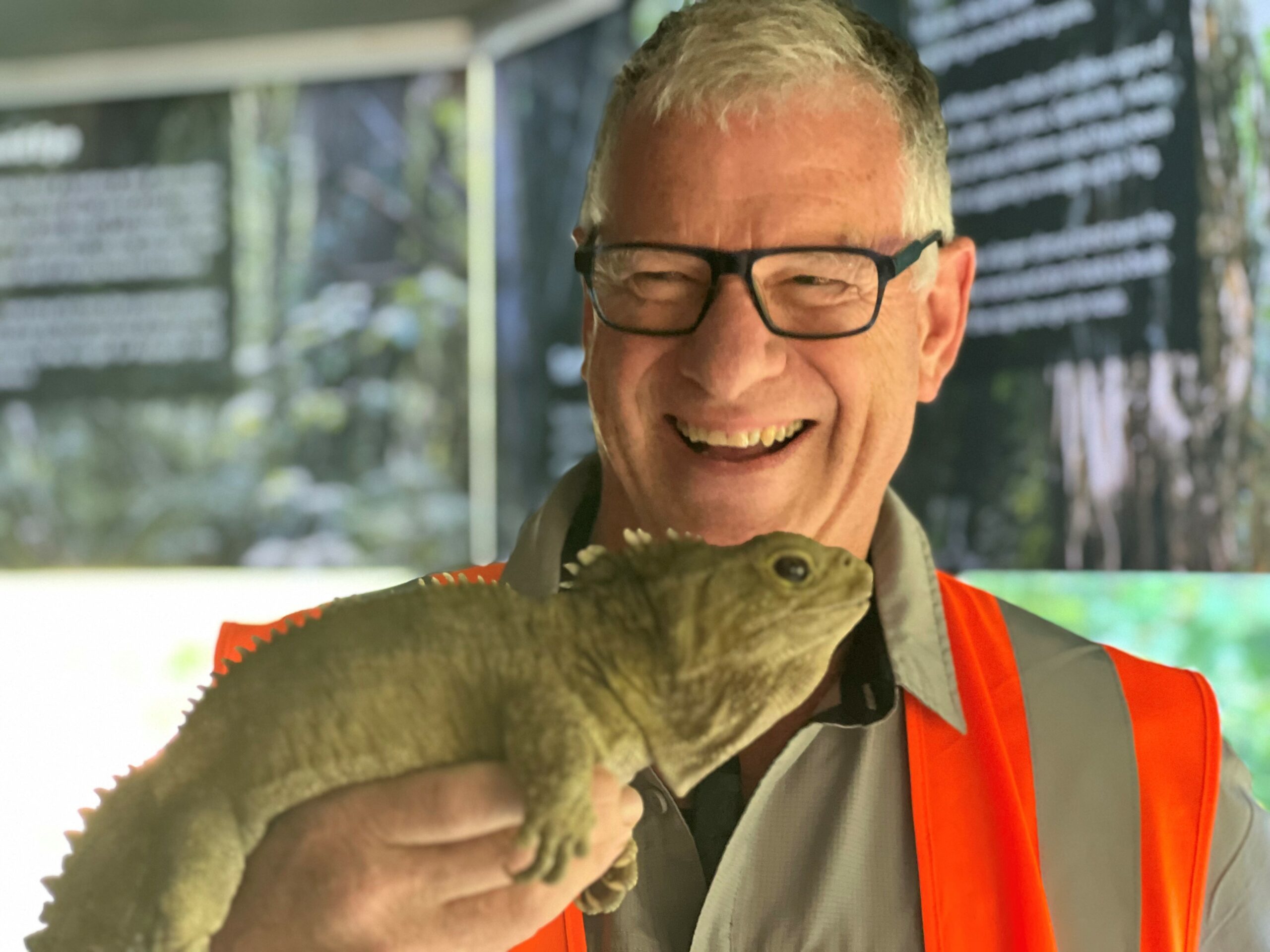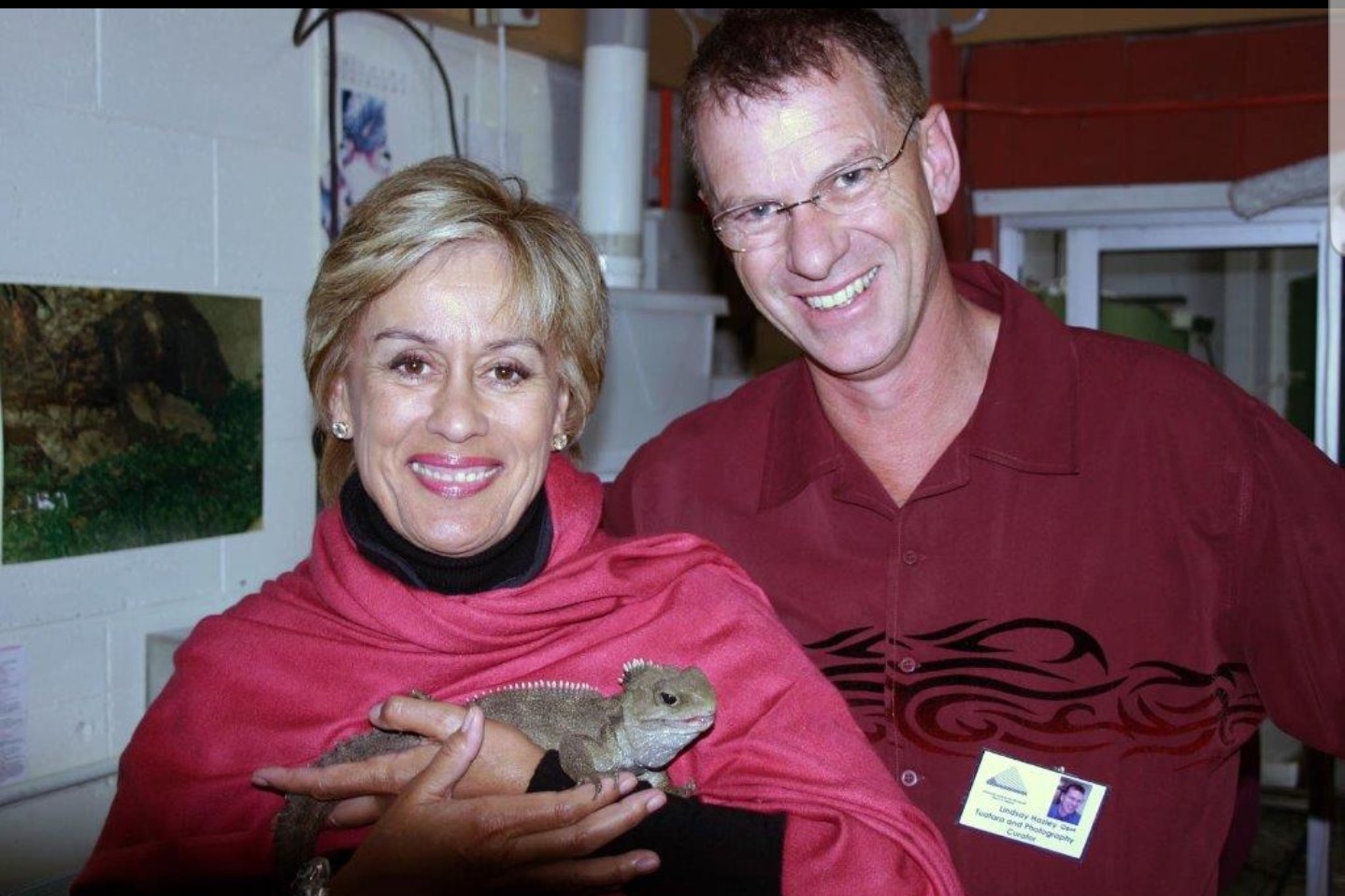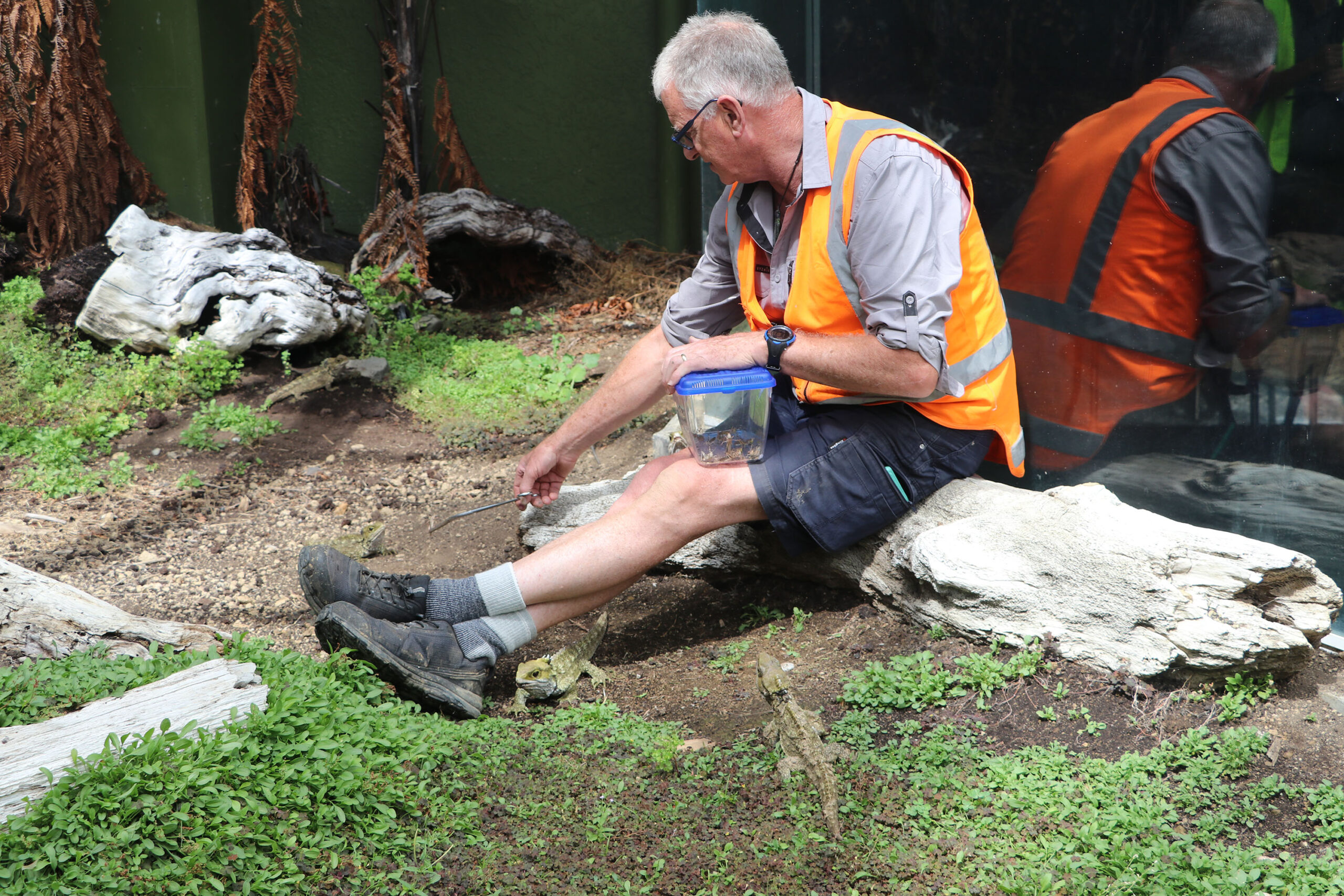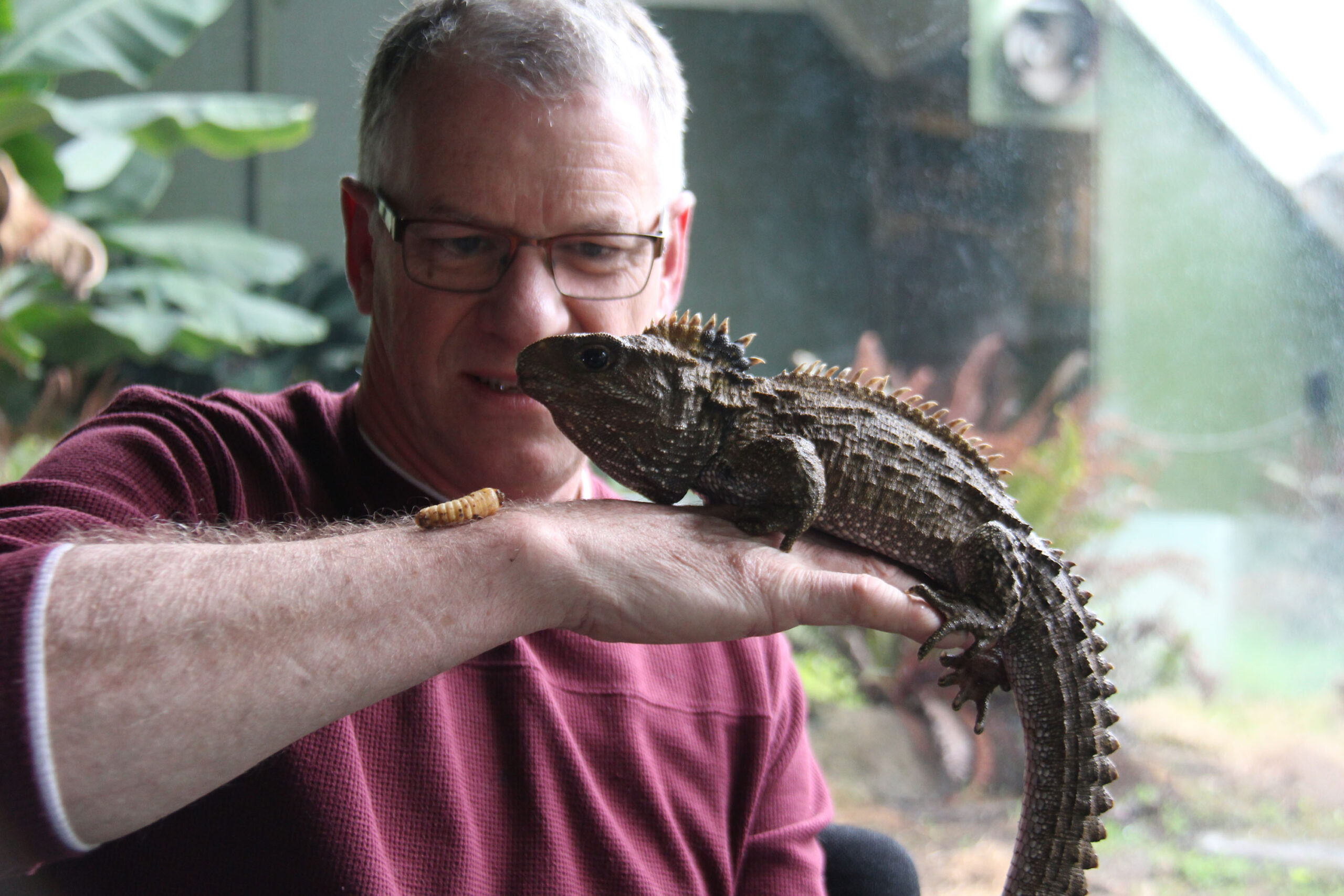In his 52 years working with the tuatara at the Southland Museum, Senior Living Species Officer Tuatara Lindsay Hazley QSM has better stories than most.
One of the standouts is when he strolled into the maternity ward at Southland Hospital, amidst several pregnant women, with pregnant tuatara Mildred, in order for her to have an ultrasound.
Mildred was egg-bound with about 16 eggs that he could see on an X-ray, but an ultrasound could show in real time just what was happening inside her. She would go on to lay all the eggs.
That’s just one of the memories Hazley will take with him when he retires this week.
Even from a young age, Queens Park appealed to him.
“When I was at Southland Boys’ High School, they’d send us on runs in the Park, and I’d stop, have a smoke and a cup of coffee, and wag school for the rest of the day,” he laughed.
When he began volunteering at the Southland Museum, before it became the pyramid, there were two tuatara in an upstairs enclosure – George and Stepanie.
The Trust Board had been writing to the Department of Internal Affairs every year since 1945 asking to add a live tuatara to its natural history exhibit, and finally, in 1960, they became kaitiaki of George.
“He was already an old tuatara when he arrived, but George looked so darn lonely, Museum Director at the time Arthur Mackenzie reckoned that they needed a girlfriend for him,” Hazley said. And so, in 1965, Stephanie was brought in.
What they didn’t account for, however, was that tuatara are very territorial, and George had spent such a long time by himself that when Stephanie arrived, he rejected her and the pair had to be separated.
Their disdain for each other didn’t last and the pair eventually mated. Unfortunately, George died two weeks later and in 1970 he was replaced by a tuatara now well-known to most – the same year Hazley officially became employed at the museum.
“They then decided to bring the monarchy into it – they named him Henry for Henry VIII. The plan was for Henry to have lots of wives,” Hazley said.
But again, Henry and Stephanie didn’t get along. So Mildred came to Southland, only to fight with Henry too.
When newbie Albert was brought in, Henry showed him the same welcome he’d given the other tuatara that arrived before him.
“The two males fought like Trojans. I came back to work one day and Henry was over a wall, had a good tussle with Albert and there were gashes all over them. I couldn’t believe it – Henry was so unnaturally aggressive. No other tuatara had ever been that aggressive.”
As long as Henry had been at the museum he’d had a growth on his bum. As time went on it got bigger but no one knew what it was, Hazley said.
“It wasn’t until about 12 years ago that I said I was frightened of it getting infected because it wasn’t going away and it wasn’t retracting. So Henry had surgery and I held him the entire time.
“The growth was sent to the lab and the results showed some cells indicating epidermal cancer tumour.”
After Henry recovered, there wasn’t an ounce of the aggression that he had once shown.
Before long Hazley discovered Henry was feeling better than ever, taking a special interest in Mildred.
“For about two weeks, we had more than 250 media outlets from around the world – Israel, Japan, Egypt, everywhere – wanting to do interviews about the 111-year-old tuatara, who was finally ready to mate.”
With a lifetime of memories under his belt, one highlight he acknowledges is the breeding programme, which he is really proud of.
“Seeing the wee guys hatch – the babies – that was a real highlight. Other tuatara have hatched in captivity, but this was a natural process that I oversaw.”
Outside the museum, Hazley has been heavily involved in his community – being on the Arts Society, Astronomical Society, and Film Society boards. He was also elected onto the Southern Institute of Technology board as a public representative for six years.
“I was chairman of the building and chairman of staffing. I didn’t even have School Cert and I was in amongst these people with degrees and diplomas.
But now as Hazley’s time with the tuatara and museum comes to a close, he is sad to not only leave a close team that are good to work with but also his little prehistoric friends.
“They’re not like a cuddly pet, but I am emotionally attached to them all.
“But I am looking forward to being my own boss, to do what I want, when I want.”
Council Manager Parks and Recreation Caroline Rain said Hazley’s contribution to the understanding and care of tuatara was both immense and irreplaceable.
“Lindsay leaves a rich legacy of knowledge that has made such a difference to Aotearoa’s understanding of tuatara and what helps them thrive.
“He will be hugely missed, not just by his colleagues but Henry, Mildred, Lucy, and the other tuatara that have come to know him as their guardian. We wish Lindsay all the best in his retirement, and we give him our word that we will love and protect the tuatara just as he has done.”
Hazley finishes up with the Parks team on Friday.





